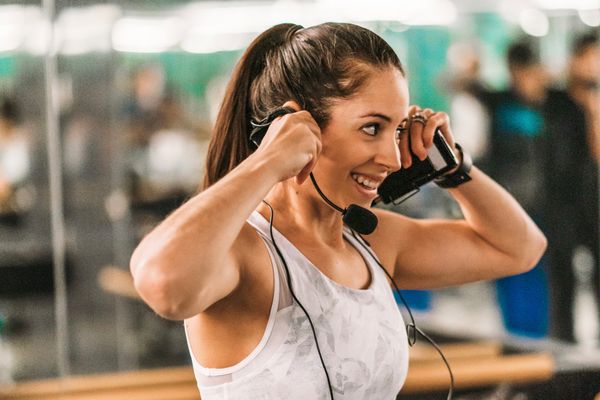If you receive a certain disruptive monthly gift, you might have heard the word "menstrual cup" floating around for a while. It's still a bit of a mystical concept and because vaginas are involved, few people are willing to talk about it. Well, I've got you covered — as a real person with a vagina (who's not afraid to talk about it), I tried a menstrual cup so you don't have to. You're welcome.
Let's start with the benefits of menstrual cups!
It's environmentally friendly. Sure, organic and biodegradable tampons exist, but using a cup avoids the waste altogether. If you average four tampons a day for a seven-day period, once a month for 12 months, in 10 years (the length of time a menstrual cup lasts) you'll use 3,360 tampons.
Not only are you saving the environment by not having to buy menstrual products for 10 years, but you'll be saving your wallet. My cup was $15 and some change but even if you buy the most expensive ones for $30/$40, you'll save hundreds of dollars.
Now that we got the pleasantries out of the way, let's start the real talk. How do you pick the cup that's right for you?
First, consider how heavy your flow is. There are different sizes that hold more or less liquid. Choose wisely, because you may actually bleed less than you think.
Next, measure your cervix. You can find directions here...I don't mind vagina talk but I'd rather not describe that process in depth. You can buy your cup depending on whether you have a high or low cervix.
Now, what brand should you use? I consider the Diva cup to be the most popular, but it is more expensive than some other brands. I chose the Pixie cup because it's a lot cheaper. If you're looking for an organic option, Organicup might be right for you. I'm not a sponsored influencer, so scope out different brands and their reviews and decide for yourself!
Alright, time to get personal. When I first opened my "regular size" cup, I was a little intimidated. I mean, I know vaginas are magical stretching machines, but I digress. This video really helped, but it took several minutes for me to figure out which folding method was best for me. After I got it in, I wouldn't stay in for more than a few minutes and was pretty uncomfortable.
By the end of my period, I still couldn't get the cup to stay in — but that's OK! My second period with the cup was much more successful and now I'm a true menstrual cup advocate. Here's a gameplan you can follow if you find yourself in the same situation at the beginning.
If your first try doesn't work out, try again when your next period comes around — the companies actually recommend giving it two periods time before getting the hang of it things.
Also, lube isn't just for sex! Cups are a LOT larger and harder than tampons, so if you got the folding down and still can't get it in (especially at the end of your period), this might help.
If your second-period passes and you've reaped no fruits of your labor, take advantage of the warranty (yes they exist — at least they do for pixie cup).
Try a new cup or a different size cup! One size does not fit all, and it's likely that a different shape size or brand will do the trick.
Good luck, my period-having, eco-conscious cohorts!



















